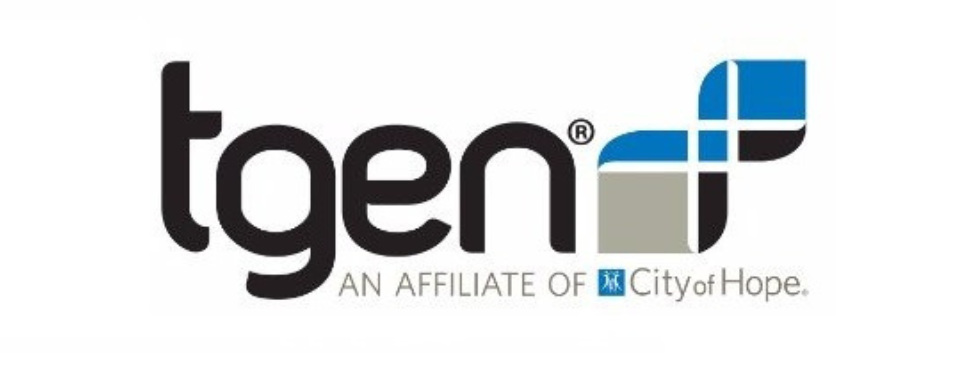Findings suggest that the patients themselves produce molecules that could reawaken their immune system to battle lung cancer
 PHOENIX, Ariz. (July 24, 2025) – A study published today by researchers at the Translational Genomics Research Institute (TGen), part of City of Hope, and clinician-scientists at Baylor Scott & White Research Institute revealed a potential new therapeutic strategy for fighting lung cancer that harnesses one of the body’s immune cells, natural killer (NK) cells. Lung cancer remains the leading cause of cancer-related deaths worldwide, and while immune-based therapeutics have demonstrated success in lung cancer, they offer benefit to less than 30 percent of lung cancer patients.
PHOENIX, Ariz. (July 24, 2025) – A study published today by researchers at the Translational Genomics Research Institute (TGen), part of City of Hope, and clinician-scientists at Baylor Scott & White Research Institute revealed a potential new therapeutic strategy for fighting lung cancer that harnesses one of the body’s immune cells, natural killer (NK) cells. Lung cancer remains the leading cause of cancer-related deaths worldwide, and while immune-based therapeutics have demonstrated success in lung cancer, they offer benefit to less than 30 percent of lung cancer patients.
The study results, published in Frontiers in Immunology, discovered that tiny particles derived from a patient’s own NK cells, known as extracellular vesicles (EVs), may kill lung cancer cells through reinvigorating the immune system’s ability to fight back against resistant tumors.
Lung cancer is expected to take the lives of 125,000 people in the U.S. this year, with most cases being non-small cell lung cancer (NSCLC). Immune-based treatments, specifically immune checkpoint inhibitors (ICI), have become a key part of early treatment for some. For many patients a lack of response, harmful side effects, or resistance to the treatment over time, limits how well these therapies work in the long run.
“While T cell-based ICI therapies have been game-changing in the fight against lung cancer, too many patients still fail to respond,” said Ronan J. Kelly, MD, MBA, FASCO, director of oncology at Baylor Scott & White Charles A. Sammons Cancer Center at Baylor University Medical Center in Dallas and senior author on the study. “We believe that NK cell-based therapies can be successful as a new therapeutic strategy that elicits immune responses without a dependence on T cells.”
In a cohort of lung cancer patients, the team leveraged leading-edge single cell sequencing and protein characterization methods to explore the circulating immune cell repertoire as well as the immune environment in the tumor.
“We observed a shift away from cytotoxic NK cell subtypes in the cancer patients, specifically those with more advanced tumors. We also observed a lack of T cells and NK cells in the tumor environment, a feature that can be exploited with our novel therapeutic strategy” said Joanna Palade, PhD, a staff scientist at TGen and lead author on the study.
The researchers were able to isolate EVs derived specifically from NK cells from the blood of lung cancer patients. These EVs are tiny packets released by cells that can act as messengers, or in this case cause cytotoxic effects, often causing them to die.
“We are now beginning to understand how to leverage the potential of EVs released by specific cell types, such as immune cells, to deliver targeted cargo capable of selectively affecting diseased cells. This represents a novel way to harness immune cells to act as adoptive therapies” said Kendall Van Keuren-Jensen, PhD, a professor in TGen’s Bioinnovation and Genome Sciences Division and co-senior author on the study.
In lung cancer cells taken from patients, the NKEV therapy caused cell death alone and in combination with standard of care treatments, and increased NK cell invasion into tumor cells.
“What’s exciting is how these vesicles actually change the immune environment around the tumor,” said Kelly. “We saw more NK cells getting into the tumor, which may help explain the enhanced tumor killing.”
The researchers also identified RNA and protein markers in the NKEVs linked to immune activation, paving the way for personalized therapeutic strategies. While more work is needed, this research marks an important step toward boosting immune-based therapies—potentially by enhancing extracellular vesicles derived from the patient’s own immune system—for targeting lung cancer.
# # #
About TGen, part of City of Hope
Translational Genomics Research Institute (TGen) is a Phoenix, Arizona-based nonprofit organization dedicated to conducting groundbreaking research with life-changing results. TGen is part of City of Hope, a world-renowned independent research and treatment center for cancer, diabetes and other life-threatening diseases. This precision medicine affiliation enables both institutes to complement each other in research and patient care, with City of Hope providing a significant clinical setting to advance scientific discoveries made by TGen. TGen is focused on helping patients with neurological disorders, cancer, diabetes and infectious diseases through cutting-edge translational research (the process of rapidly moving research toward patient benefit). TGen physicians and scientists work to unravel the genetic components of both common and complex rare diseases in adults and children. Working with collaborators in the scientific and medical communities worldwide, TGen makes a substantial contribution to help patients through efficiency and effectiveness of the translational process.
Media Contact
Galen Perry
602-343-8423
gperry@tgen.org
